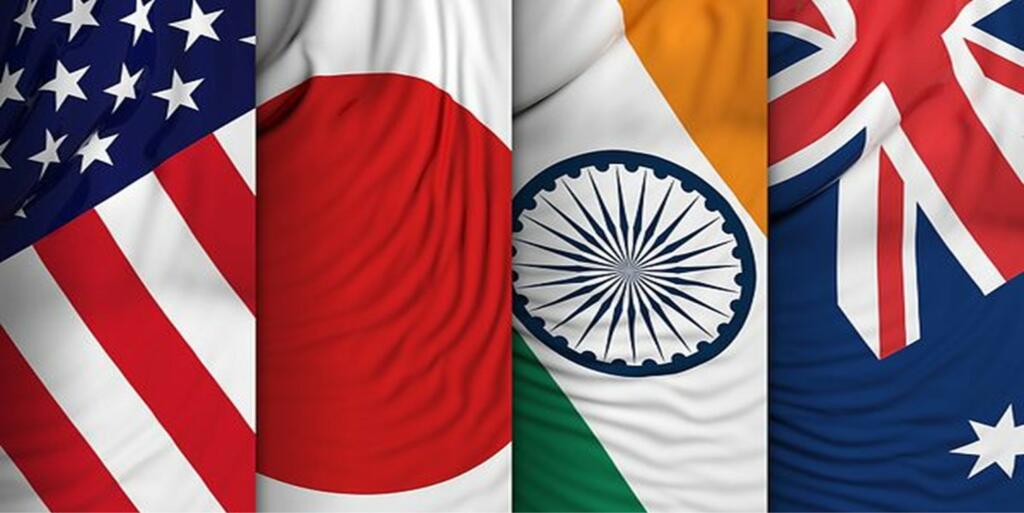It is a tragedy of South Asia that we have to remember it in such a way. The organisation is literally dead because of its internal differences. Those of us who are keeping a close watch on Indo-Pacific understand that QUAD has traits similar to that of SAARC.
QUAD, IPEF, China and Indo-Pacific
General belief is that QUAD is designed to counter the threat of authoritarian China. That is true. At the same time, it is also an established fact that China became the main target because it threatens peace and cooperation in the Indo-Pacific. That gets us to the conclusion that a peaceful Indo-Pacific leading to global peace is the ultimate goal. Proof of the pudding lies in the fact that all 4 countries which are part of the security dialogue are also partners in the Indo-Pacific Economic partnership (IPEF).
Now, 4 countries coming together for a specific goal is a big deal. That too when 3 of them are ranked under Top10 economies of the world. Top economies are not known for compromising with their sovereign economic, strategic and other interests.
Also read: Quad’s new move to “take care” of China’s neighbour aggression
Internal differences in QUAD
It was quite visible when India pulled out of the trade pillar of IPEF. India did not like American hegemony and so took its own route.
It definitely raised eyebrows on internal differences of QUAD. These types of inconsistencies tend to prove Chinese prognosis about the organisation right. Publications like South China Morning Post and Global Times have been crying over rooftops about the failure of QUAD. Despite that ,internal differences on sovereignty issues do not die down. Uncle SAM just refuses to get serious about the region which has more than half of the global population under democracy and generates 33 per cent of global output. It sounds ironic as on the face of it, it is the United States which is most active, but on-ground reality tells a different story.
Time and again it is refusing to take the biggest democracy on board. At the cost of India, Uncle Sam is constantly arming Pakistan with arms and billions of dollars. India’s EAM Jaishankar had taken US to the cleaners for not even recognizing India’s original map.
It is not India which feels unwelcomed. Even Japan does not fully trust QUAD for full support. It is arming itself to face the rising threat. Few weeks ago, it approved a 26.3 per cent increase in defence spending. Americans being there for technical support does not convince the Japanese for troop galvanisation in case of emergency. Japan is facing such a threat from China as well as Russia. While India will definitely support it against China, Japan is not sure about India’s support in its conflict with Russia over the Sea of Japan.
Also read: Forget America, India and Japan is going to drive the Anti-China QUAD
Members are looking for security partners
Which is one of the reasons why Japan is looking for more security partners. Few days ago, it signed a defence agreement to enable deployment of British troops in Japan. In its statement Japan mentioned both Russia and China. Both countries have also joined hands for cooperation in cyber resilience, online safety and semiconductors. China is again a common link, or should I say, common challenge in these domains. Additionally, Italy is assisting both countries in developing the new generation of air fighter jets.
Japan has also been looking at intra-QUAD partners to beef up its security. With the Australians, Japan has signed a military cooperation pact similar to that they did with the UK. Both have also upgraded their Joint Declaration on Security Cooperation, which was signed in 2007. It now encompasses military, intelligence and space and cybersecurity cooperation.
Like Japan, India and the US have also beefed up their bilateral security pacts, both with QUAD members as well as non-QUAD ones. While the US has AUCKUS, India has military logistics and reciprocal agreements with Australia, Japan, the United States, France, Singapore and South Korea among others.
Clearly, bilateral pacts are dominating the Indo-Pacific more than multilateral QUAD. QUAD members are themselves flag-bearers of those pacts. If those were in spirit of solidarity with each-other, that would have been great news. Unfortunately, the foundational principles of these bilateral pacts seem distrustful of the group as a whole. This is not good news for sure.
Support TFI:
Support us to strengthen the ‘Right’ ideology of cultural nationalism by purchasing the best quality garments from TFI-STORE.COM
